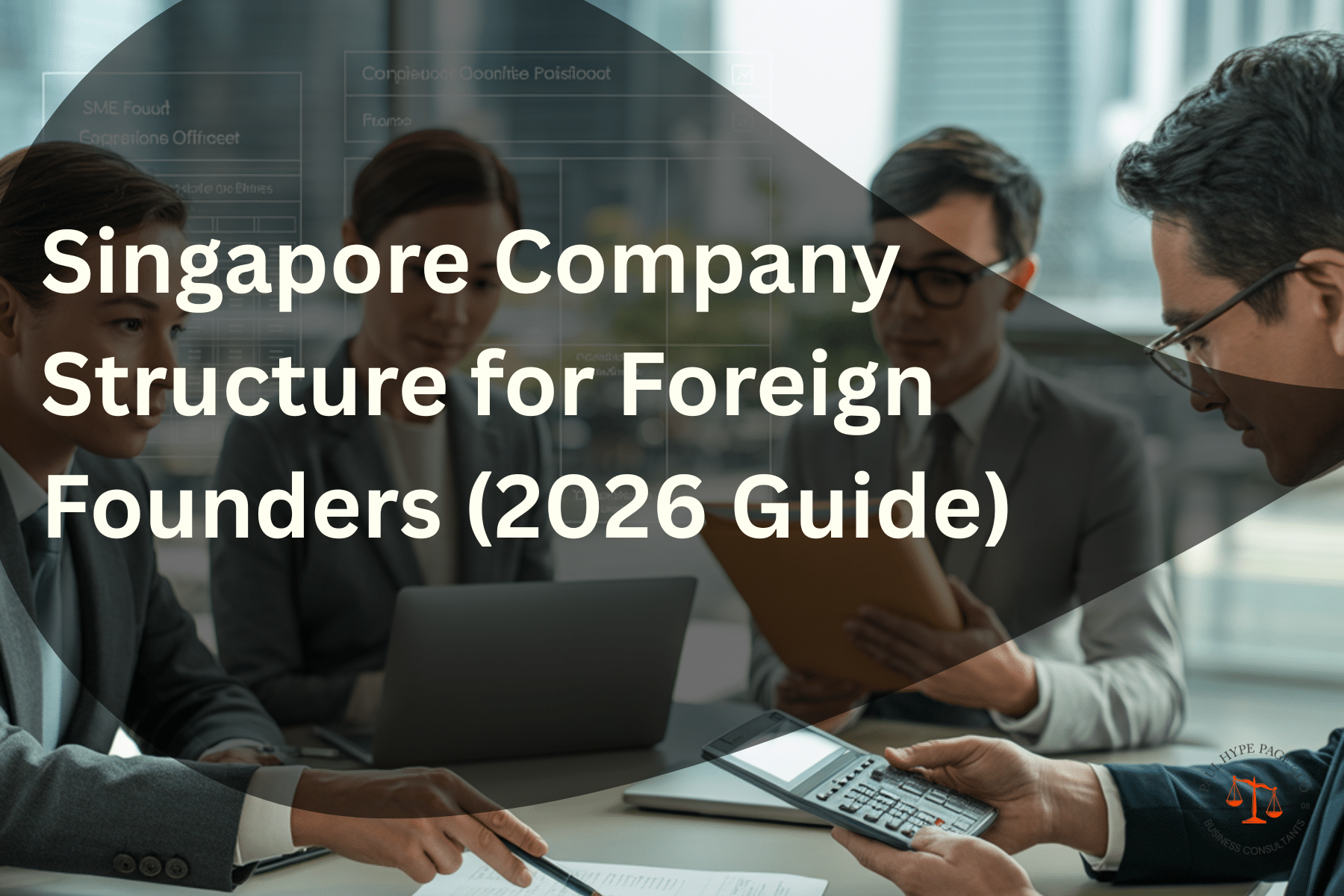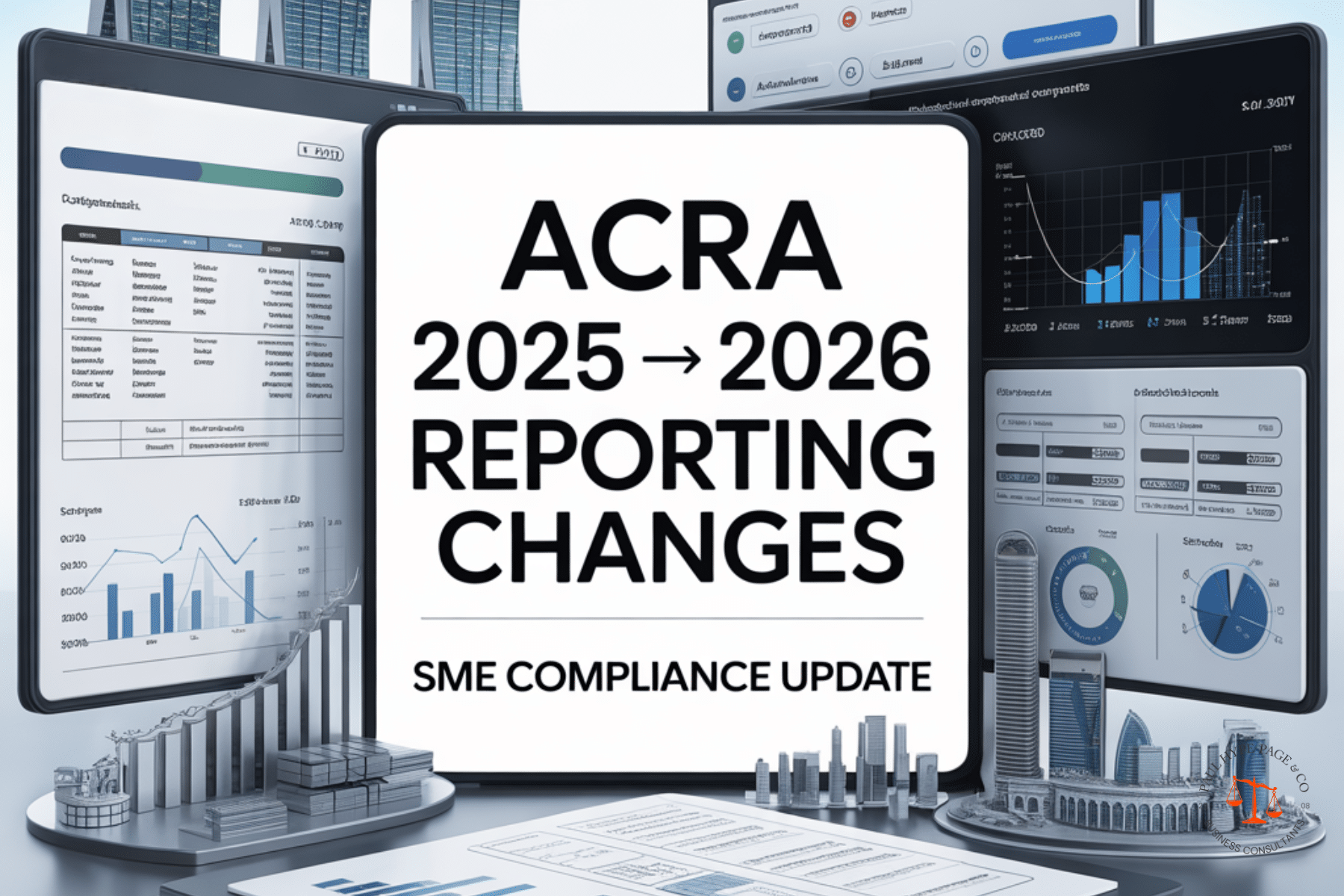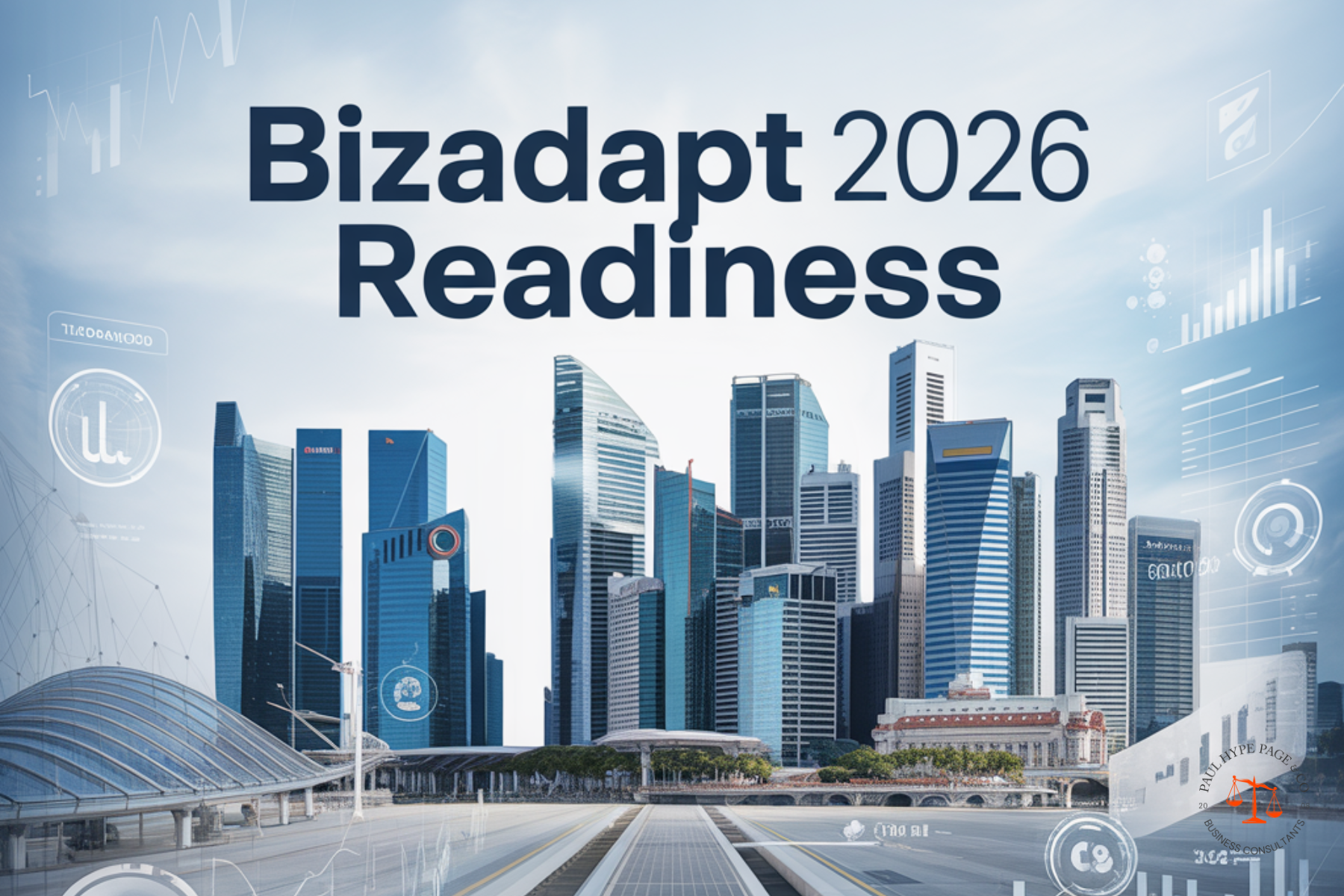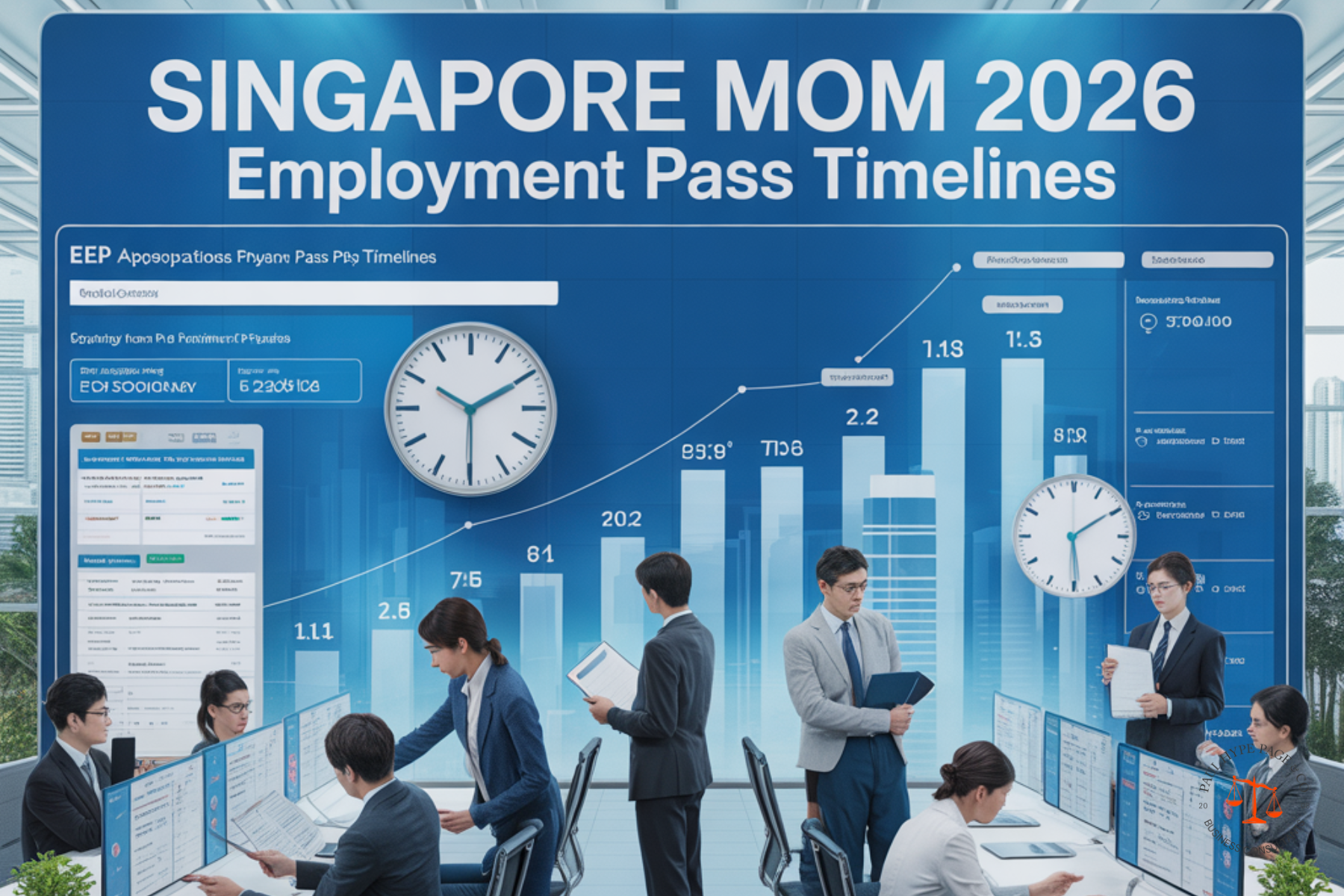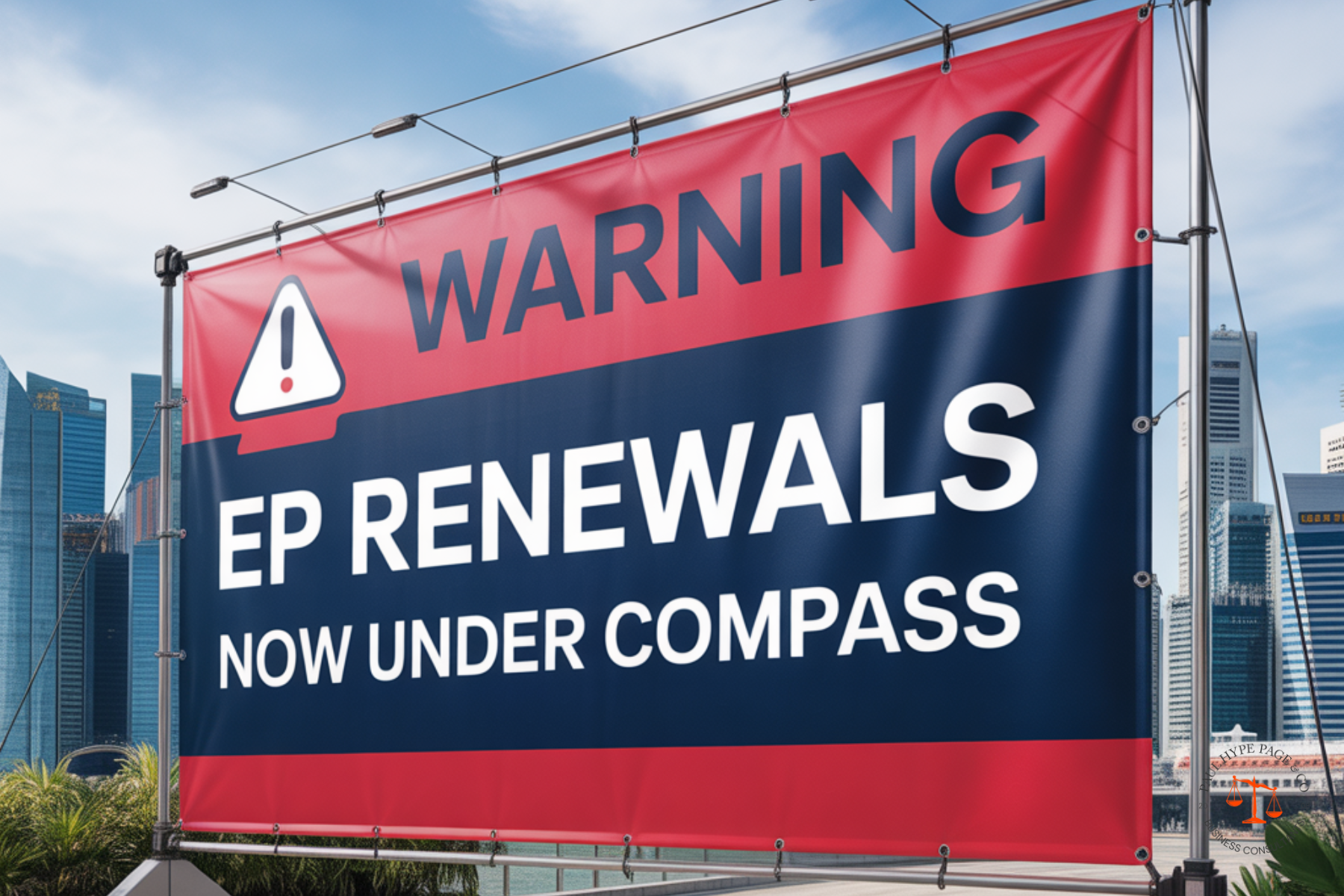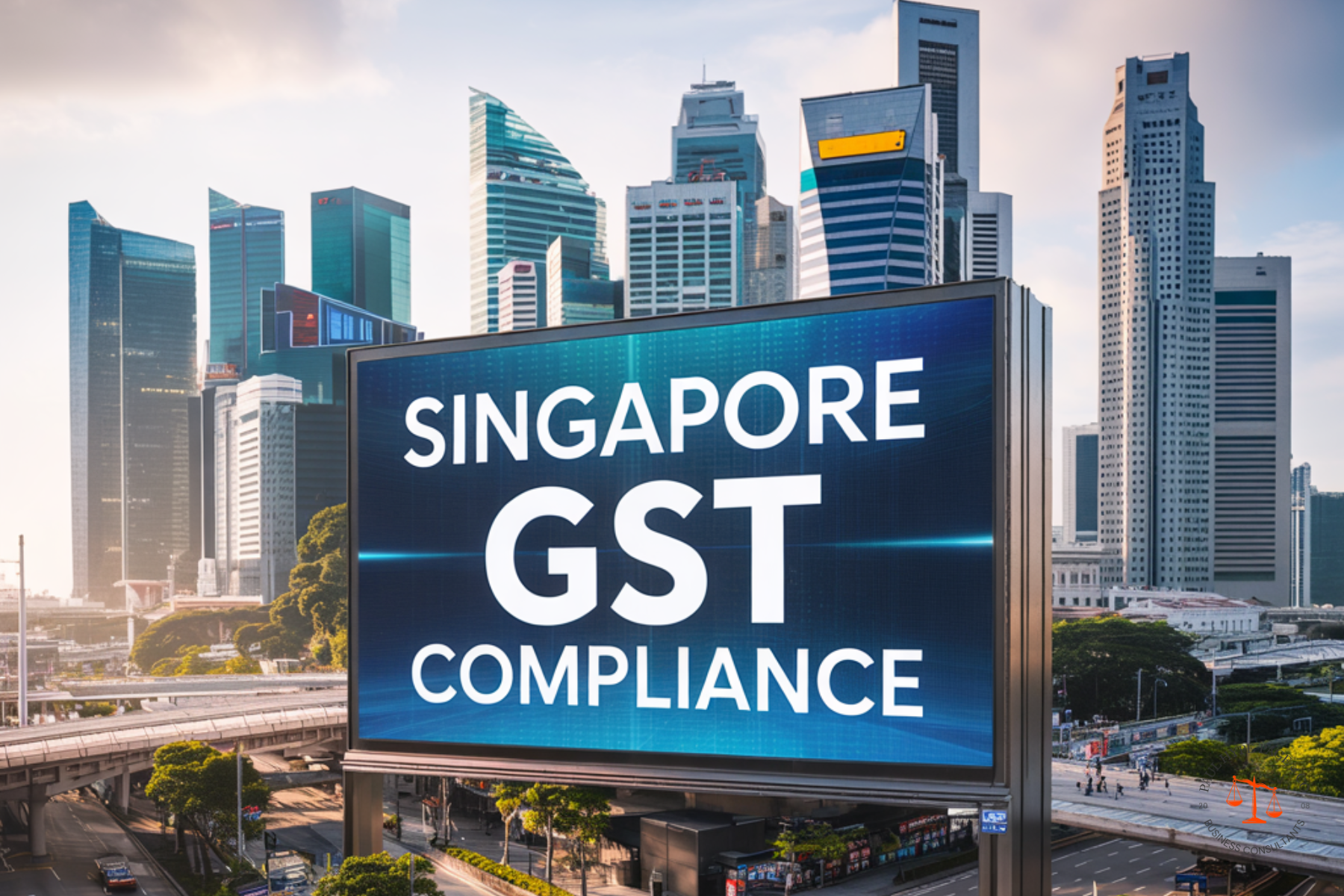All Resources
October – December 2025 | Singapore Guides
Foreign founders setting up a Singapore company in 2026 must think beyond incorporation and focus on tax readiness and work pass eligibility from day one. This guide explains how to structure your Singapore company to meet IRAS expectations, support Employment Pass approval, and avoid costly restructuring later.
Singapore–China RMB and capital market initiatives are reshaping how businesses manage banking, foreign exchange, accounting, and tax exposure. This guide explains what SMEs should review and adjust in their finance strategy to stay compliant and prepared for 2026.
Singapore’s S Pass levy will rise to as high as S$650 by 2026, pushing employers to rethink their manpower strategy. Shifting suitable roles toward Employment Pass (EP) talent can reduce long-term labour costs while strengthening workforce capability and MOM compliance.
ACRA’s 2025 reporting updates mark a major shift in Singapore’s financial compliance standards, particularly for SMEs preparing their year-end accounts. This article explains the updated requirements and outlines how businesses can prepare for stricter enforcement in 2026.
The BizAdapt Grant offers SMEs a strategic opportunity to strengthen accounting systems, tax governance, and operational resilience ahead of 2026. With global compliance standards rising, using BizAdapt to modernise financial foundations today helps SMEs stay competitive and expansion-ready tomorrow.
MOM’s updated Employment Pass processing timelines mean HR teams must redesign recruitment cycles, documentation workflows, and candidate screening processes ahead of 2026. This guide explains how employers and foreign professionals can prepare early to avoid delays, strengthen applications, and adapt to Singapore’s evolving hiring landscape.
Singapore’s labour market continues to expand, but wage growth is projected to slow sharply in 2026, creating a rare window for founders to build teams at more sustainable cost levels. For new and foreign-owned companies, this shift offers a strategic opportunity to establish operations before manpower pressures rise again.
Worried about whether you can still qualify for a Singapore Employment Pass in 2025? This guide breaks down the new S$5,600 salary requirement, COMPASS scoring rules, and practical strategies expats can use to maximise approval under the updated framework.
From 1 September 2024, all Employment Pass renewals in Singapore must pass the COMPASS Framework — making renewals significantly stricter and more data-driven than before. This guide explains what has changed, how COMPASS scoring affects your foreign talent, and what employers must do now to avoid renewal rejection.
Singapore’s Budget 2025 offers companies up to S$40,000 in tax savings and cash support through the Corporate Income Tax Rebate and Cash Grant scheme. This guide explains how your business can qualify, maximise the benefits, and strengthen cash flow going into 2025.
Starting November 2025, all newly registered GST companies in Singapore must adopt InvoiceNow, the nationwide e-invoicing system mandated by IRAS. This new requirement streamlines tax compliance, enhances data accuracy, and ensures businesses stay fully aligned with Singapore’s digital GST framework from day one.
Foreign entrepreneurs in Singapore often rely on trusted accounting firms to provide nominee directors who safeguard their business reputation and ensure full compliance with ACRA and banking regulations. By partnering with a licensed Corporate Service Provider like Paul Hype Page & Co., foreigners can avoid legal risks, maintain transparency, and build a credible foundation for long-term business success.
The Monetary Authority of Singapore (MAS) has introduced comprehensive updates to its AML/CFT framework, tightening compliance standards across financial institutions and Corporate Service Providers (CSPs). These reforms aim to strengthen transparency, accountability, and risk management — reinforcing Singapore’s position as a trusted global financial hub.
Considering setting up a representative office in Singapore? Find out more in this article for permitting activities, requirements, documents and timeline for a successful establishment.
July – September 2025 | Singapore Guides
Setting up a business in Singapore, there are a few entities you can choose from. The most popular would be a private company.
Integrating the IIA’s updated Internal Audit Standards with Singapore’s National Risk Assessment (NRA) creates a powerful framework for businesses to enhance their risk management and governance practices. This integration ensures compliance with both global best practices and local regulatory requirements, boosting credibility and investor confidence.
The Business Grants Portal (BGP) in Singapore is an essential tool for early-stage startups, streamlining access to multiple government grants, licenses, and permits through a single platform. It offers significant funding opportunities for entrepreneurs, helping them grow their businesses smarter, faster, and more efficiently.
Expanding your business into Singapore? Our brief guide here streamlines the process of registering a branch office in Singapore and explains details on the taxation of Singapore branch office
If you are planning to set up business in Singapore, opening a corporate bank account is one of an important steps. In this article, we will cover the requirements, as well as, the tips and tricks of opening a successful corporate bank account.
Discover how Singapore’s Unique Entity Number (UEN) streamlines your company incorporation by serving as a single, permanent identifier for all interactions with ACRA, IRAS, and other government agencies.
An SSIC code—a five-digit, hierarchical identifier based on ISIC—categorizes your business’s principal activities for ACRA registration, licensing, and grant or loan applications in Singapore. Learn how to find, select, and update your SSIC code on BizFile+ to stay compliant, unlock tax incentives, and avoid costly classification errors.
Establishing a sole proprietorship in Singapore comes with its own set of pros and cons, and this article provides comprehensive details of the incorporation process.

